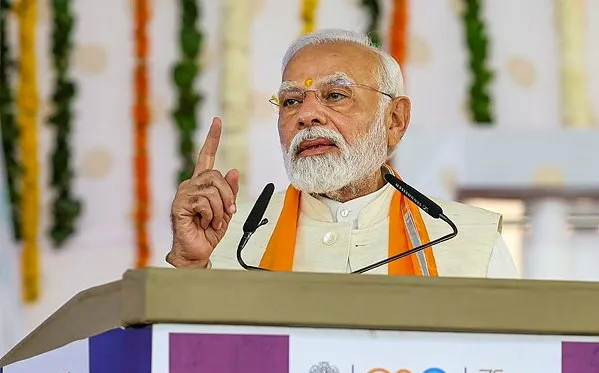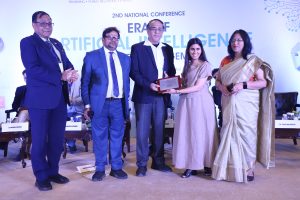June 7, 2024 – Days after the announcement of the Lok Sabha results, the political landscape is abuzz with discussions and negotiations as preparations intensify for Narendra Modi’s anticipated third term as Prime Minister. The newly elected members of the BJP-led National Democratic Alliance (NDA) are set to convene today to formally elect Modi as their leader.
Following Modi’s expected election as the NDA leader, he will be joined by senior MPs and key NDA figures, including Nitish Kumar and Chandrababu Naidu, for a crucial meeting with President Droupadi Murmu. The delegation will present a list of MPs supporting Modi, officially staking their claim to form the government.
Senior BJP leaders, including Amit Shah and Rajnath Singh, have been engaged in continuous deliberations, orchestrating the formation of the new government. Amid these efforts, a senior Janata Dal (United) leader has emphasized the need for his party to receive respectable representation in the Union Cabinet, adding a layer of negotiation to the process.
Earlier, Narendra Modi submitted his resignation to President Murmu, a procedural step before he takes the oath for his third consecutive term, likely on Sunday. This development follows assurances of support from NDA coalition partners. The political climate on Wednesday was marked by intense negotiations and strategic meetings by both the Congress-led INDIA alliance and the BJP-led NDA, as no single party achieved a clear majority.
Lok Sabha Elections 2024 Results:
To form the government, a simple majority of 272 seats in the Lok Sabha is required. According to the Election Commission of India, the Bharatiya Janata Party (BJP) secured 240 seats, a significant drop from their 2019 tally of 303. The Congress Party made notable gains, winning 99 seats. Overall, the BJP-led NDA coalition garnered 293 seats, while the Congress-led INDIA bloc surpassed 230 seats, presenting a formidable challenge and defying many predictions.
The BJP’s reduced seat count has necessitated swift and strategic coalition-building efforts to secure a stable government. In contrast, the Congress’ improved performance has emboldened the INDIA alliance, setting the stage for a highly competitive political environment.
As the nation watches closely, today’s NDA meeting is pivotal, not only for electing Narendra Modi as the leader but also for setting the tone for the upcoming term. The coalition dynamics within the NDA, the representation of allied parties in the cabinet, and the response from the opposition will shape the political narrative moving forward.
Key Points to Watch:
- The formal election of Narendra Modi as the leader of the NDA.
- The subsequent meeting with President Droupadi Murmu to present the support list and stake the claim to form the government.
- Negotiations concerning the representation of NDA allies in the Union Cabinet.
- Strategic moves by the Congress-led INDIA alliance in response to the evolving political scenario.
With the political machinery in full swing, the formation of the new government marks the beginning of another significant chapter in India’s democratic journey. As Narendra Modi prepares for his third term, the emphasis will be on maintaining coalition unity and addressing the expectations of both the electorate and the allied parties.














